公式サプライヤー
公式および認定ディストリビューターとして200社以上の開発元から正規ライセンスを直接ご提供いたします。
当社のすべてのブランドをご覧ください。
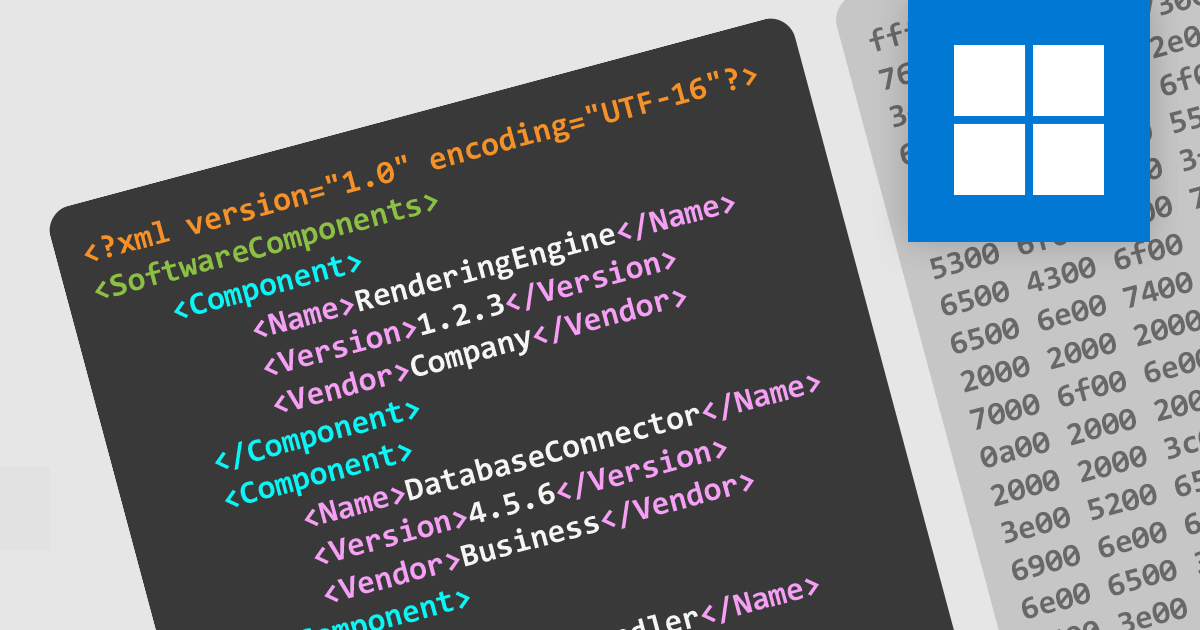
Support for multiple file encodings in structured document tools is essential for ensuring compatibility between different systems, preserving data integrity, and enabling seamless collaboration across environments. These tools allow users to work with various character encodings, such as UTF-8, UTF-16, and legacy formats like ISO-8859, ensuring that documents are correctly interpreted and displayed regardless of their origin. Robust encoding support also helps prevent data corruption and loss when working with XML, JSON, and other structured document formats, making it a critical feature for developers and technical writers handling internationalized content.
Several structured document tools offer file encoding support including:
For an in-depth analysis of features and price, visit our structured document tools comparison.
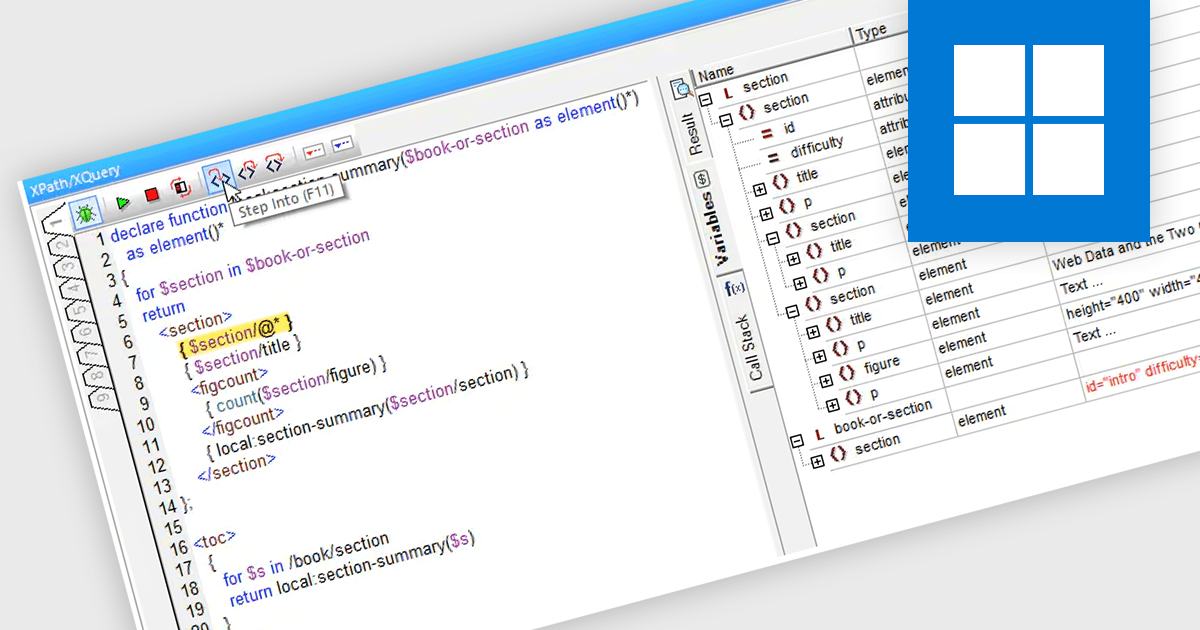
An XQuery debugger is a software tool designed to aid in the development and troubleshooting of XQuery expressions. Similar to debuggers used for traditional programming languages, it allows you to step through your XQuery code line by line, set breakpoints to pause execution at specific points, and inspect the values of variables during execution. This helps pinpoint errors in logic and data handling within your XQuery expressions, ensuring they manipulate XML data as intended.
Several structured document tools offer XQuery debugging functionality including:
For an in-depth analysis of features and price, visit our structured document tools comparison.
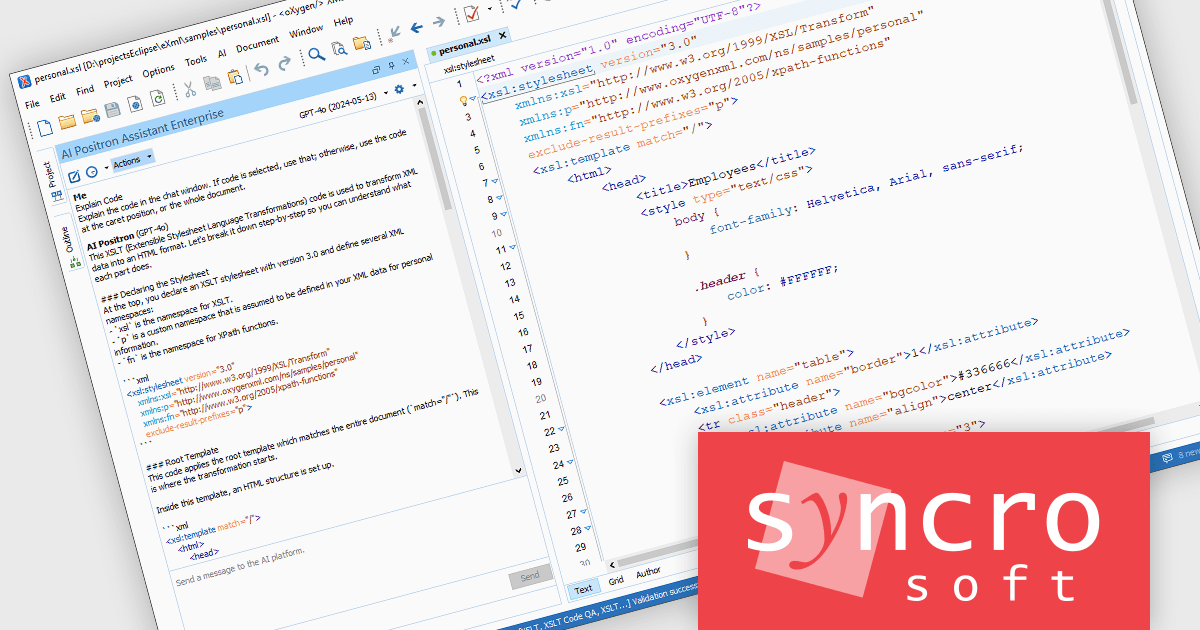
Oxygen JSON Editor is a specialized tool that simplifies working with JSON data. It provides multiple editing views: a text mode for familiar editing with features like content completion and validation, a grid mode for viewing JSON as nested tables for easy manipulation, and even an author mode that translates JSON into a visual XML structure. This flexibility, along with support for related formats like JSON Schema and YAML, makes Oxygen a powerful option for anyone who frequently edits or creates JSON data.
The Oxygen JSON Editor 27.0 release adds the ability to configure custom user-defined Artificial Intelligence actions to appear as Quick Assist fixes in the editor. This improves user convenience by providing direct access to frequently used fixes without the need to navigate through menus, and supports customization to better suit their workflow and preferences.
To see a full list of what's new in 27.0, see our release notes.
Oxygen JSON Editor is licensed per Named user and is available as a Timed License subscription. See our Oxygen JSON Editor licensing page for full details.
Learn more on our Oxygen JSON Editor product page.
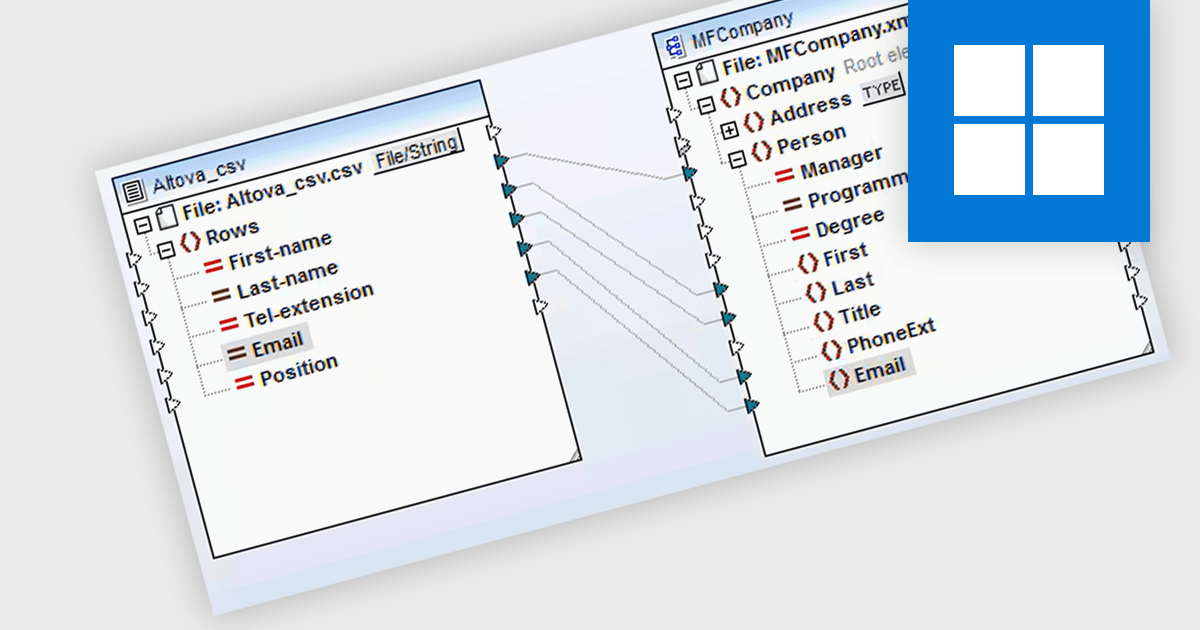
CSV to XML conversion is the process of transforming data stored in a flat, delimited format (CSV) into XML, a hierarchical and self-descriptive markup language. This transformation enables developers to leverage XML's rich structure, allowing for better data organization, schema validation, and compatibility with systems and applications that rely on XML for data exchange or configuration. The conversion facilitates interoperability, supports advanced querying with technologies like XPath and XQuery, and integrates seamlessly with web services, APIs, and other XML-based workflows, enhancing data portability and usability in diverse software environments.
Several structured document tools offer CSV to XML conversion including:
For an in-depth analysis of features and price, visit our structured document tools comparison.
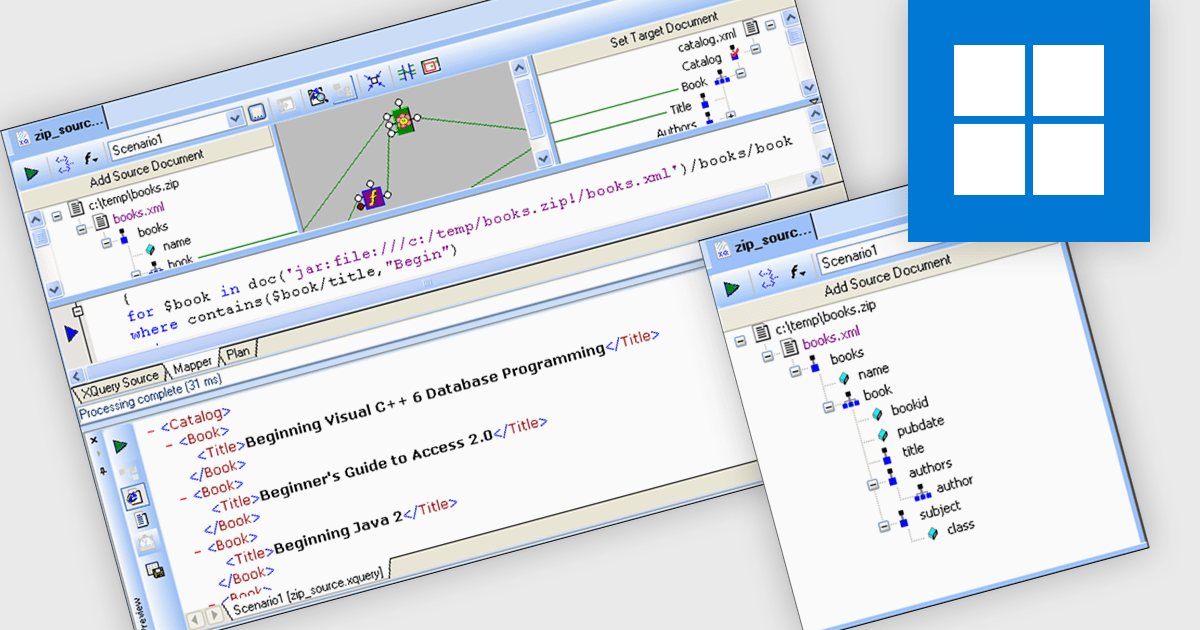
Archive support allows XML tools to the process and manage XML data within compressed archive files, such as ZIP or JAR. This enables developers to efficiently handle large XML datasets or collections of XML documents without the need for prior extraction. By integrating archive support directly into the XML processing pipeline, developers can streamline their workflows, reduce disk space usage, and improve overall performance by minimizing the number of file system operations required. This is particularly beneficial when dealing with distributed systems or when working with large, frequently updated XML repositories.
Several Structured Document Tools can work with files directly from various archives including:
For an in-depth analysis of features and price, visit our structured document tools comparison.